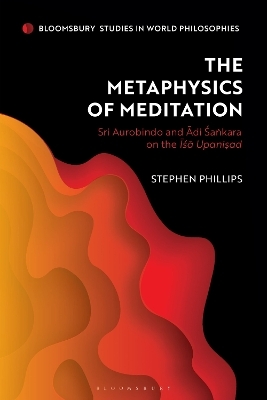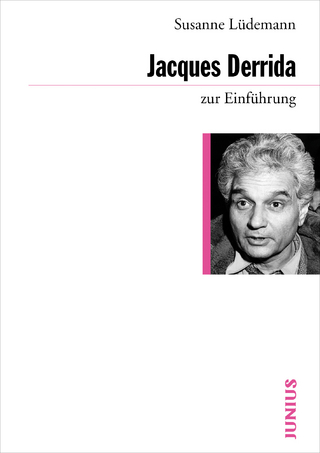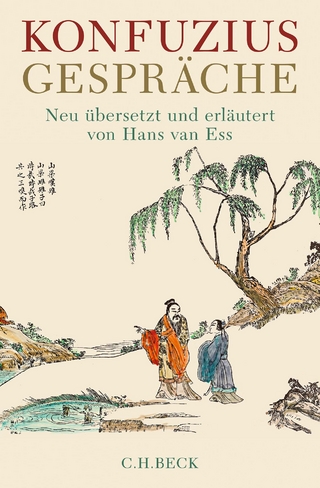
The Metaphysics of Meditation
Bloomsbury Academic (Verlag)
978-1-350-41241-5 (ISBN)
The Isa (c. 500 BCE) an “Upanisad” belongs to a genre of “adhyatmika” learning—concerning self and consciousness—in early Indian literature. According to the Ancient Indian tradition of yoga, meditation is antithetical to willful bodily and mental action. Breathing is all you do. In the conception of the Isa Upanisad, we are told that the best that comes from meditation is because of what the “Lord” is. In Sankara's interpretation it comes to block out the little “you,” whereas according to Aurobindo it comes as a divine connection, an occult “Conscious Force” belonging to truer part of oneself, atman, and an “opening” to that self’s native energy.
Framed around Aurobindo’s translation of each of the Isa’s eighteen verses, along with a translation of each verse, Phillips follows a different reading of Sankara as laid out in his commentary. All this is done against the backdrop of modern scholarship. Convergences and divergences of these streams are the focus throughout. Appendix A presents the Upanisad with the two readings side by side.
This book traces a worldview and consonant yoga teaching common to two authors who are typically taken to be oceans apart, not only chronologically but in intellectual stance. Addressing a huge gap in the contemporary literature on meditation in the Hindu traditions, Phillips presents a compelling new way of thinking about meditation in the Advaita Vedanta philosophy and Upanisad.
Stephen Phillips is Professor Emeritus of Philosophy and Asian Studies at the University of Texas at Austin, USA.
Acknowledgments
Sanskrit Transliteration and Pronunciation
Introduction: Vedanta and Yoga
(Vedantic meditation; Upanisads; Sankara and Aurobindo; Sankhya’s pradhana vs Vedanta’s brahman; the Bhagavad Gita; the Brahma-sutra and Vedantic metaphysics; action and “liberation”; meditation and “knowledge”; modern studies of Vedanta; Aurobindo vs Sankara)
1. Who is Addressed by Adi Sankara, Who by Sri Aurobindo?
2. “Blocked Out” by the Lord or “Integrated?” (Isa 1, 2, & 3)
3. The Whole in the Part (Isa 4 & 5 & the makgala-vacana)
4. Mystical Knowledge of Unity (Isa 6 & 7)
5. (K)nots of Metaphysics: The Causal Argument for the “Self-Existent,” svayam-bhu (Isa 8)
6. Knowledge of Self (atman) and Knowledge of the Occult (Isa 9 through 14)
7. A Theistic Way to Self-Discovery (Isa 15 & 16)
8. Aspiration and Surrender (Isa 17 & 18)
Appendix A: The Isa Upanisad (the two readings and the Sanskrit)
Appendix B: Sankara’s Commentary on the Isa Upanisad
Appendix C: From the Bhagavad Gita
Part One: “The Yoga of Meditation” (Gita chapter 6)
Part Two: “The Yoga of Action” (Gita chapters 3, 4, & 5)
Appendix D: Sankara’s Theodicy (from his Brahma-sutra Commentary)
Glossary (Sanskrit words; Classical schools, authors, and texts)
Notes
Bibliography
Index
| Erscheinungsdatum | 09.01.2024 |
|---|---|
| Reihe/Serie | Bloomsbury Studies in World Philosophies |
| Verlagsort | London |
| Sprache | englisch |
| Maße | 156 x 234 mm |
| Themenwelt | Geisteswissenschaften ► Philosophie ► Östliche Philosophie |
| Geisteswissenschaften ► Religion / Theologie ► Hinduismus | |
| ISBN-10 | 1-350-41241-4 / 1350412414 |
| ISBN-13 | 978-1-350-41241-5 / 9781350412415 |
| Zustand | Neuware |
| Haben Sie eine Frage zum Produkt? |
aus dem Bereich


